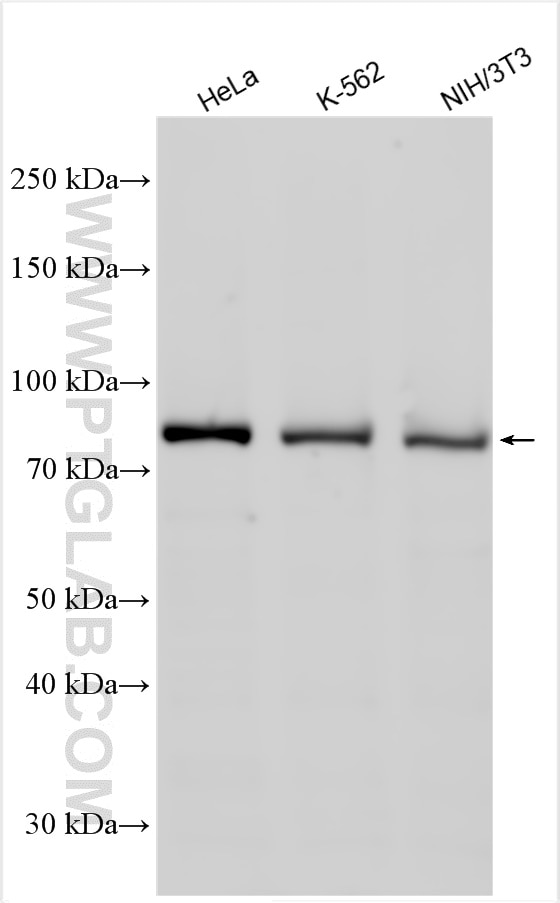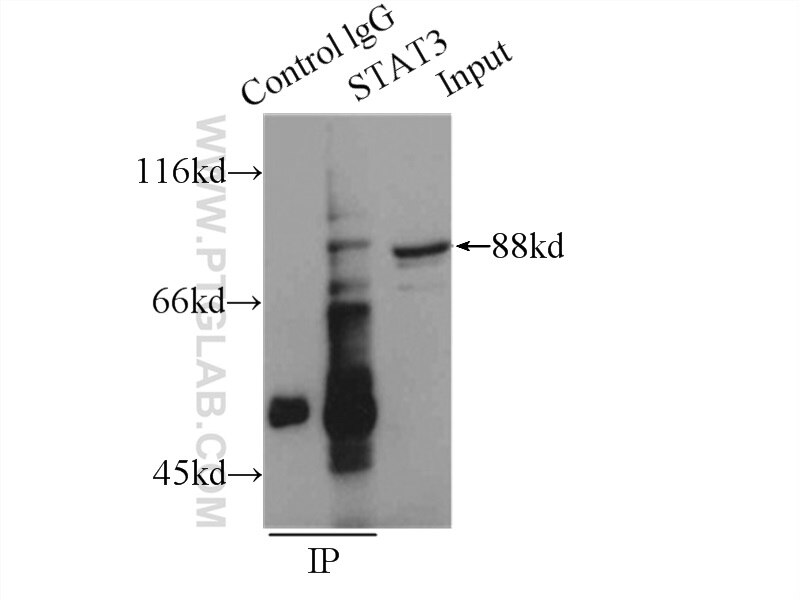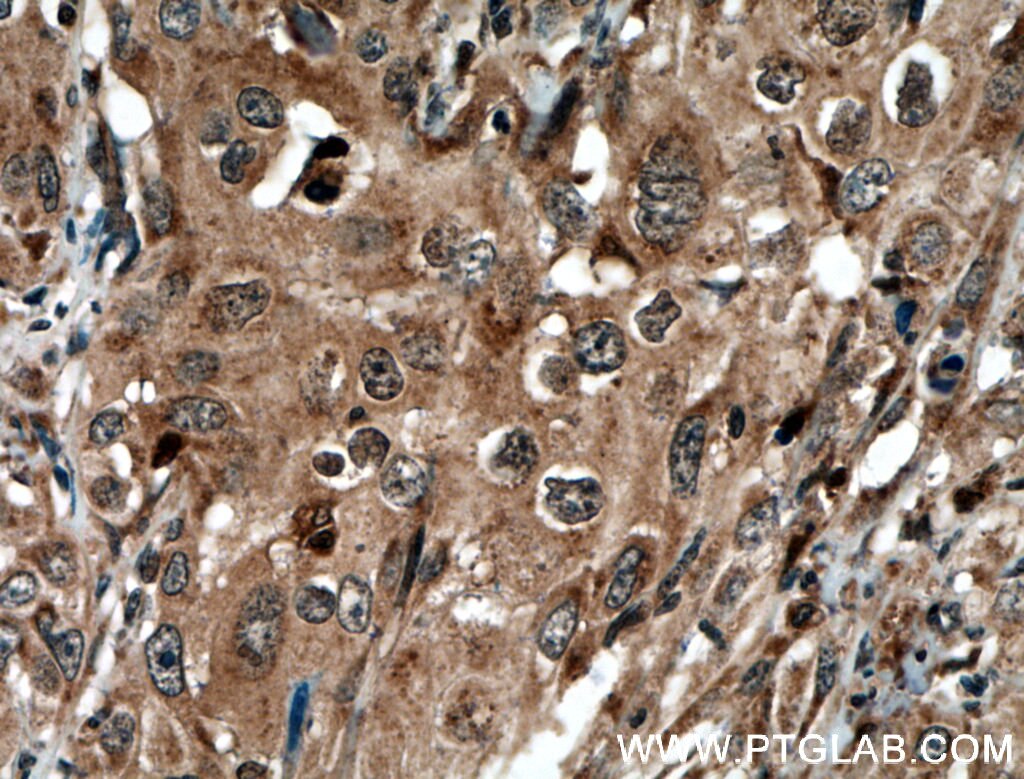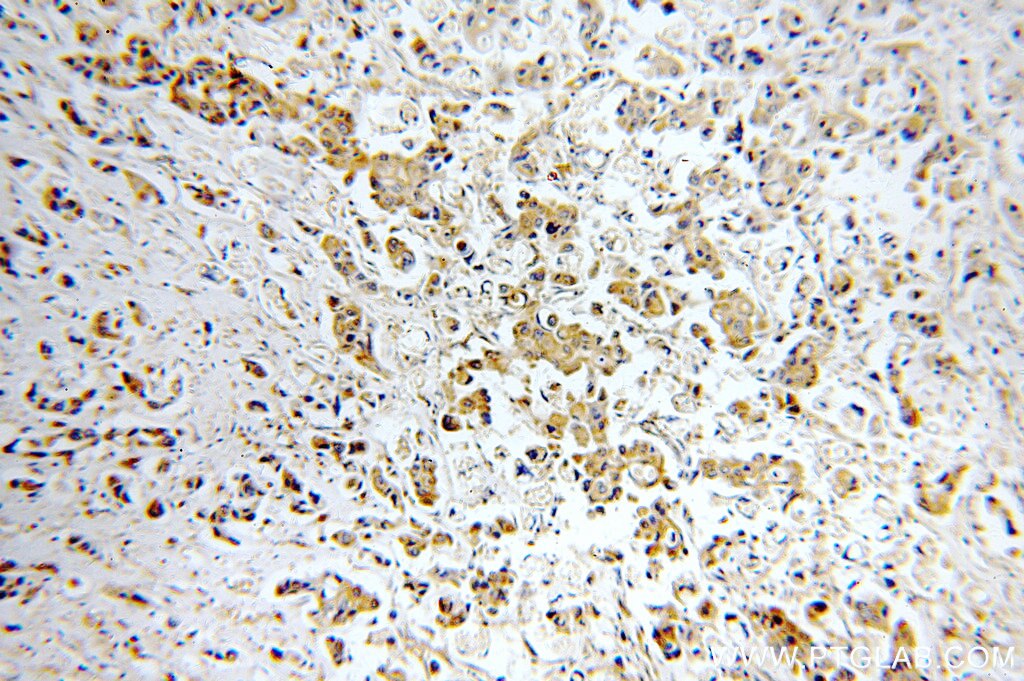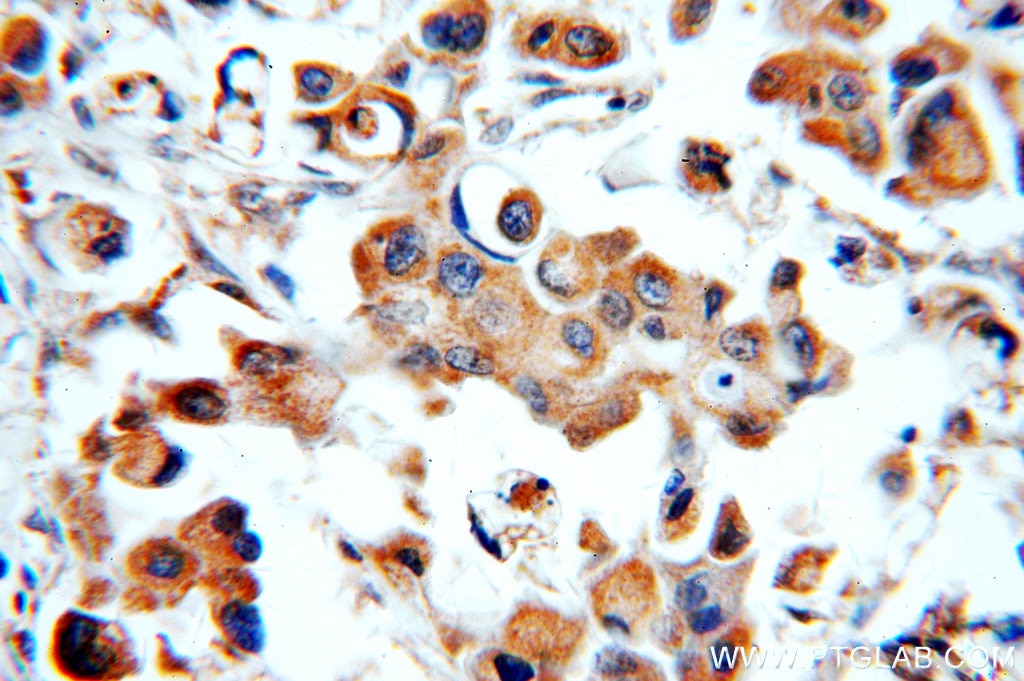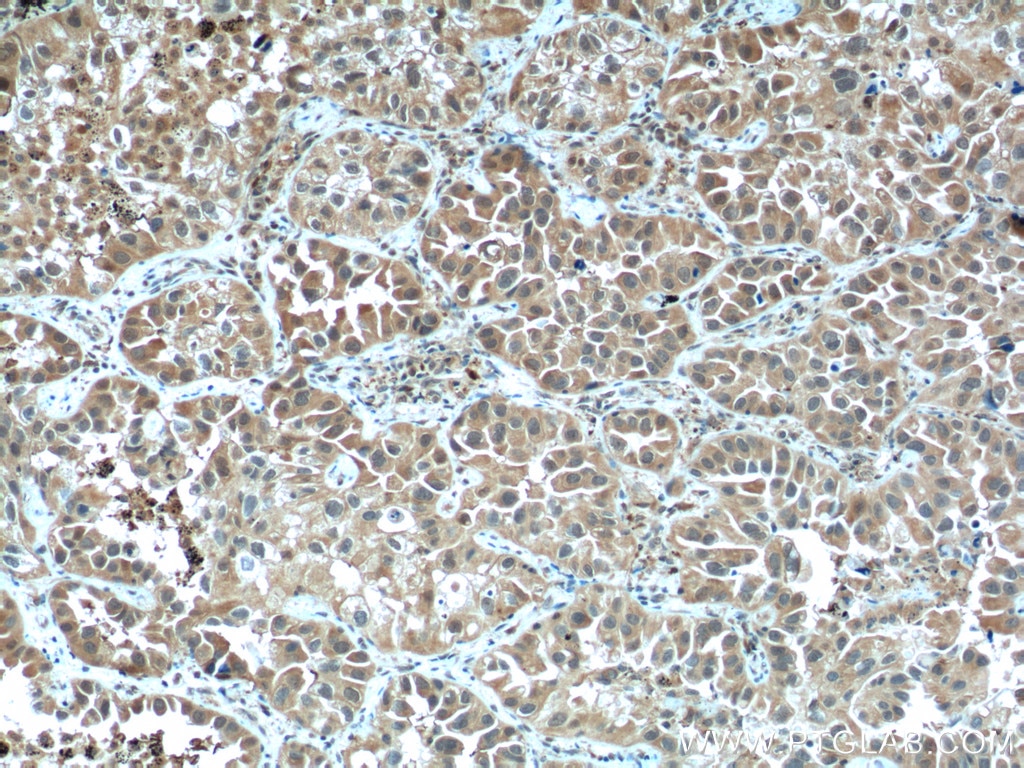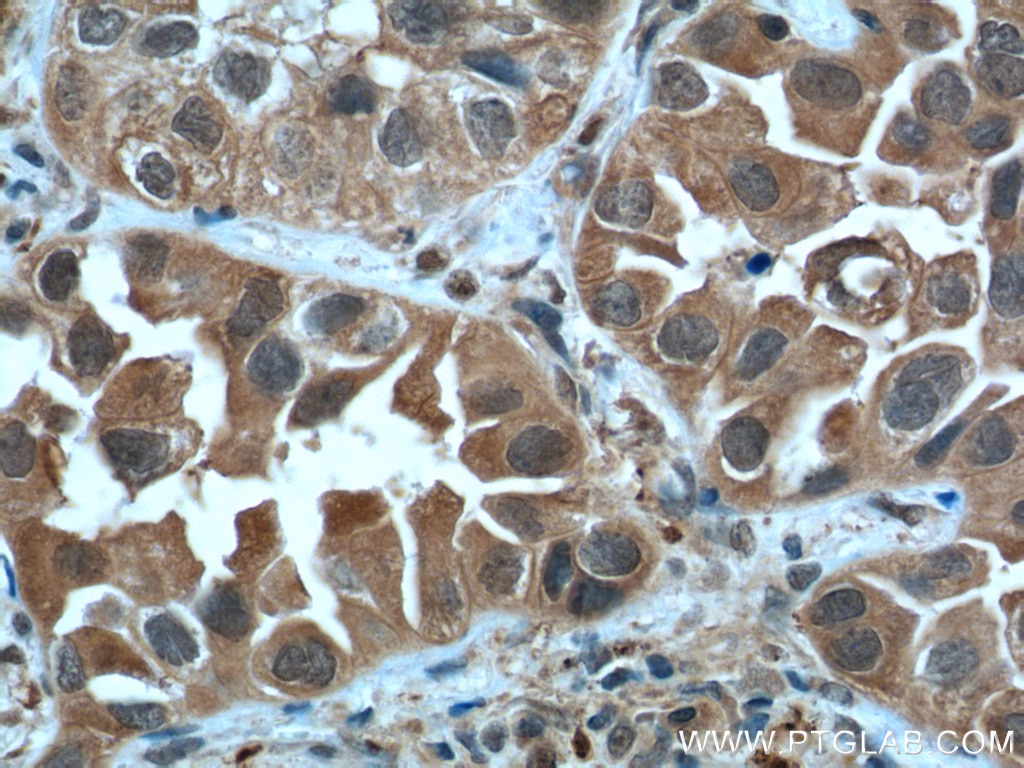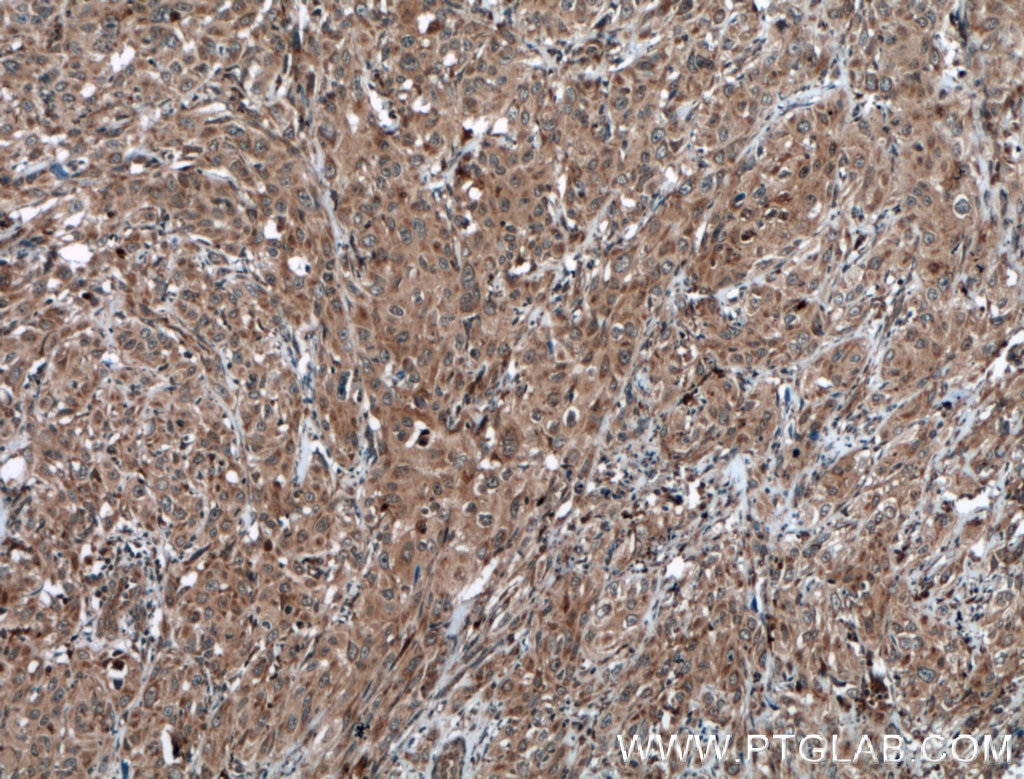Tested Applications
| Positive WB detected in | HeLa cells, K-562 cells, NIH/3T3 cells |
| Positive IP detected in | HeLa cells |
| Positive IHC detected in | human cervical cancer tissue, human breast cancer tissue, human lung cancer tissue Note: suggested antigen retrieval with TE buffer pH 9.0; (*) Alternatively, antigen retrieval may be performed with citrate buffer pH 6.0 |
Recommended dilution
| Application | Dilution |
|---|---|
| Western Blot (WB) | WB : 1:2000-1:12000 |
| Immunoprecipitation (IP) | IP : 0.5-4.0 ug for 1.0-3.0 mg of total protein lysate |
| Immunohistochemistry (IHC) | IHC : 1:50-1:500 |
| It is recommended that this reagent should be titrated in each testing system to obtain optimal results. | |
| Sample-dependent, Check data in validation data gallery. | |
Published Applications
| WB | See 5 publications below |
| IP | See 1 publications below |
Product Information
51076-2-AP targets STAT3 in WB, IHC, IP, ELISA applications and shows reactivity with human, mouse samples.
| Tested Reactivity | human, mouse |
| Cited Reactivity | human, mouse |
| Host / Isotype | Rabbit / IgG |
| Class | Polyclonal |
| Type | Antibody |
| Immunogen |
Peptide Predict reactive species |
| Full Name | signal transducer and activator of transcription 3 (acute-phase response factor) |
| Calculated Molecular Weight | 770 aa, 88 kDa |
| Observed Molecular Weight | 88 kDa |
| GenBank Accession Number | BC000627 |
| Gene Symbol | STAT3 |
| Gene ID (NCBI) | 6774 |
| RRID | AB_2198610 |
| Conjugate | Unconjugated |
| Form | Liquid |
| Purification Method | Antigen affinity purification |
| UNIPROT ID | P40763 |
| Storage Buffer | PBS with 0.02% sodium azide and 50% glycerol, pH 7.3. |
| Storage Conditions | Store at -20°C. Stable for one year after shipment. Aliquoting is unnecessary for -20oC storage. 20ul sizes contain 0.1% BSA. |
Background Information
Signal transducer and activator of transcription 3 (acute-phase response factor) (STAT3, synonyms: APRF, FLJ20882, MGC16063) is a member of the STAT protein family. In response to cytokines and growth factors, STAT family members are phosphorylated by the receptor associated kinases, and then form homo- or heterodimers that translocate to the cell nucleus where they act as transcription activators. STAT3 is activated through phosphorylation in response to various cytokines and growth factors including IFNs, EGF, IL5, IL6, HGF, LIF and BMP2. STAT3 mediates the expression of a variety of genes in response to cell stimuli, and thus plays a key role in many cellular processes such as cell growth and apoptosis. The small GTPase Rac1 has been shown to bind and regulate the activity of STAT3. This antibody is a rabbit polyclonal antibody raised against a peptide mapping within human STAT3. STAT3 exists three isoforms and the molecular weight of each isoform respectively is 83 kDa, 87 kDa and 88 kDa.
Protocols
| Product Specific Protocols | |
|---|---|
| IHC protocol for STAT3 antibody 51076-2-AP | Download protocol |
| IP protocol for STAT3 antibody 51076-2-AP | Download protocol |
| WB protocol for STAT3 antibody 51076-2-AP | Download protocol |
| Standard Protocols | |
|---|---|
| Click here to view our Standard Protocols |
Publications
| Species | Application | Title |
|---|---|---|
FASEB J Lmo4-resistin signaling contributes to adipose tissue-liver crosstalk upon weight cycling. | ||
Neurotox Res Hispidulin Inhibits Neuroinflammation in Lipopolysaccharide-Activated BV2 Microglia and Attenuates the Activation of Akt, NF-κB, and STAT3 Pathway. | ||
Oncol Lett ST8SIA1 inhibits the proliferation, migration and invasion of bladder cancer cells by blocking the JAK/STAT signaling pathway. | ||
Cell Biol Int Identification and analysis of glycogen synthase kinase 3 beta1 interactome. | ||
Mol Med Rep A small GTPase?like protein fragment of Mycoplasma promotes tumor cell migration and proliferation in?vitro via interaction with Rac1 and Stat3. | ||
J Ethnopharmacol Cyberpharmacology uncover the mechanism of the total Rhizoma Coptidis extracts ameliorate chronic atrophic gastritis |

